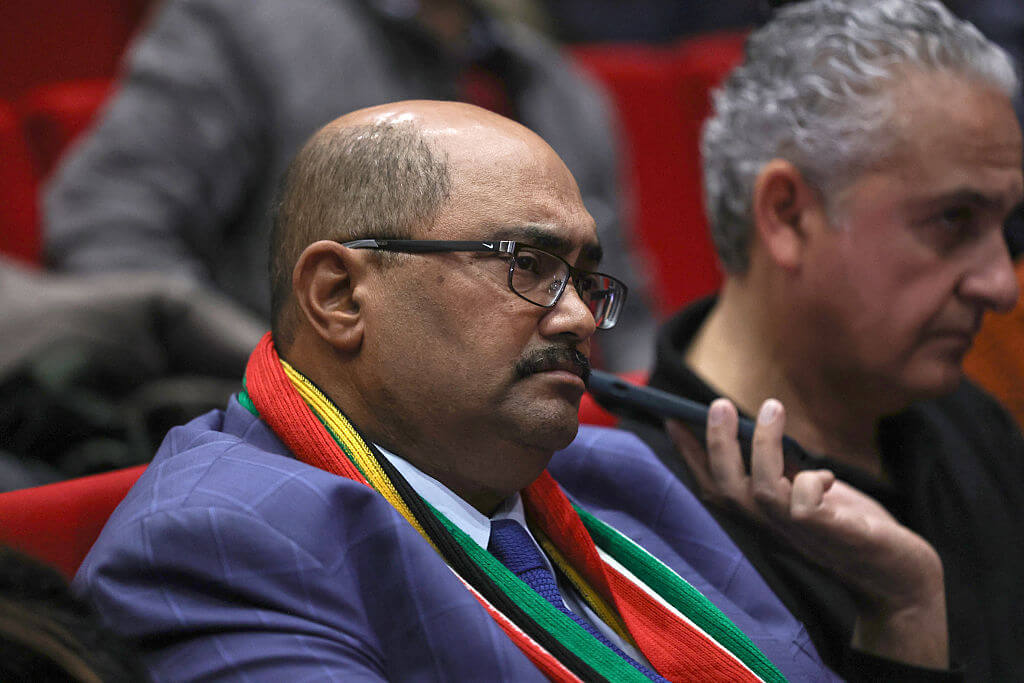An Intelligent Choice to Lead The New CIA?
I have never met Republican Rep. Porter Goss, nor have I ever spoken with him. Still, as the author of two books on convicted spy Jonathan Pollard, the fact that Goss could be the new director of the CIA gives great me cause for concern.
First of all, let me say that I am not a Bush-basher. In fact, even though I’m a registered Democrat, I slightly prefer the current president over John Kerry to be our commander-in-chief during these troubled times. Second, I am not particularly bothered by the fact that in 1999 Goss wrote a scathing article, picked up by The Washington Times, in which the Florida congressman was adamant that Pollard, an American who spied for Israel, should never be released from prison — even though I totally disagreed with Goss on this matter.
The problem I have with Goss is that when it came to the Pollard spy case, he simply didn’t have his facts straight. And he should have. A former CIA operative and chairman of the House Select Committee on Intelligence, Goss appeared, instead, to be parroting what he heard from others in the CIA who had an agenda.
Goss simply took the faulty information and ran with it. Today, with Al Qaeda breathing down our necks, ready, willing and perhaps even able to destroy our way of life, I do not want a director of central intelligence who is little more than an empty suit and a spin doctor.
I want a bold intelligence chief who can make sound decisions based on quality information. Most importantly, I want a director of central intelligence who will tell his commander-in-chief the truth — and not necessarily what the president wants to hear.
Goss noted in his article about Pollard, a former civilian Naval Intelligence analyst, that “Pollard’s ideology was not what motivated him; it was primarily his greed.” Well, that’s Goss’s opinion. I disagree, but that’s subjective and I won’t argue it.
However, Goss goes on to say that Pollard “approached three, and perhaps four, countries with the secrets he had pledged to protect.” Goss continues: “Two were predominantly Christian countries, one predominantly Buddhist, and one was a sectarian Muslim state. In 1984, he approached Israeli military intelligence and found a buyer.”
Aside from Israel, exactly which countries did Pollard approach? Yes, I’ve heard the rumors. But if Goss knows, he should let us know. He can’t, of course, because his friends in the CIA, who passed this “information” on to him, mostly were blowing smoke. If those countries were in fact named, then good journalists could have investigated and asked to see the proof.
Goss goes on to say that Pollard’s “betrayal compromised this nation’s most sensitive sources and methods, causing excessive damage to our national security, while adding risk to the lives of brave Americans who protect our country.”
But Goss is not specific. He can’t be specific because, again, this is a gross exaggeration of the damage Pollard actually caused. Truth be told, as a GS-12 analyst Pollard never had access to much of the material he was alleged to have passed on to the Israelis from 1984 to 1985, and some claim was then passed on to the Soviets. Simply put, he didn’t have the necessary clearance.
Goss also notes that “upon his release, the thousands of dollars that are most likely still being deposited into a foreign account by Israel would surely make (Pollard) a millionaire. If he is released, Pollard’s treacherous crimes will pay, and handsomely.”
Well, many of us have “thousands of dollars” in our bank accounts, but we are not millionaires. In actuality, the Israelis were supposed to place $300,000 in a Swiss bank account for Pollard if he worked for them for 10 years — that’s $30,000 a year, which barely covered Pollard’s expenses — but the account never was activated.
Goss then states that releasing Pollard “would now risk further damage to our national security; he still has secrets to sell.” Did Goss realize that Pollard was arrested in 1985? What intelligence secrets could he possibly have had to sell in 1999?
Finally, Goss notes that Pollard’s life sentence is a “fair punishment for the hardship and excessive damage he has caused. It is not unreasonable to assume that in war times Pollard could have been sentenced to death for his betrayal.”
Pollard was officially accused of one count of passing classified information to an American ally: Israel. For that he could have been given the death penalty? Is Porter Goss delusional?
The bottom line is that the world we live in today is a very dangerous place. The director of central intelligence needs to be a tough-minded individual who is willing to do whatever it takes to change the CIA for the better. As the president picks the right person for the job, this is hardly the time to make a mistake.
Elliot Goldenberg is author of “The Hunting Horse: The Truth Behind the Jonathan Pollard Spy Case” (Prometheus Books, 2000) and “The Spy Who Knew Too Much: The Government Plot to Silence Jonathan Pollard” (S.P.I. Books, 1993).














